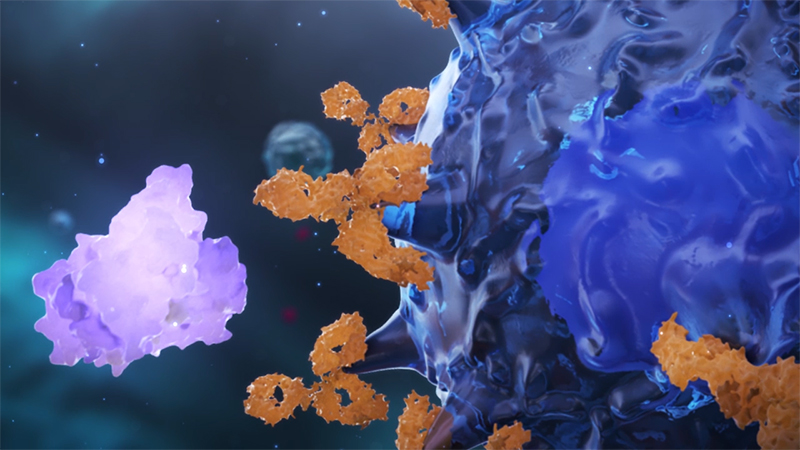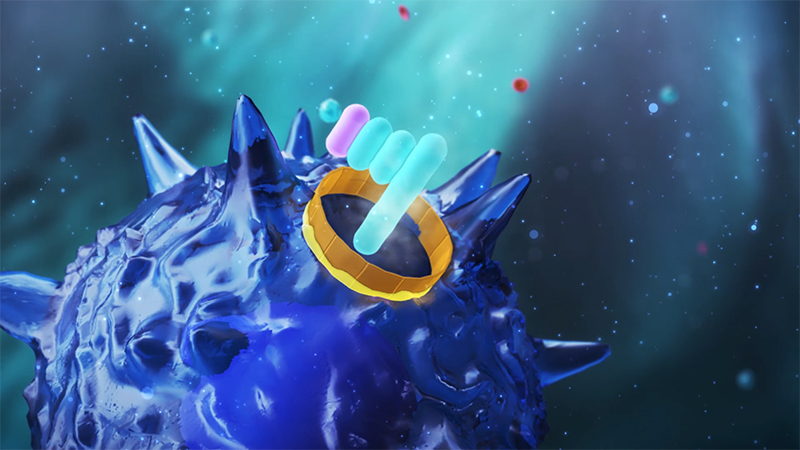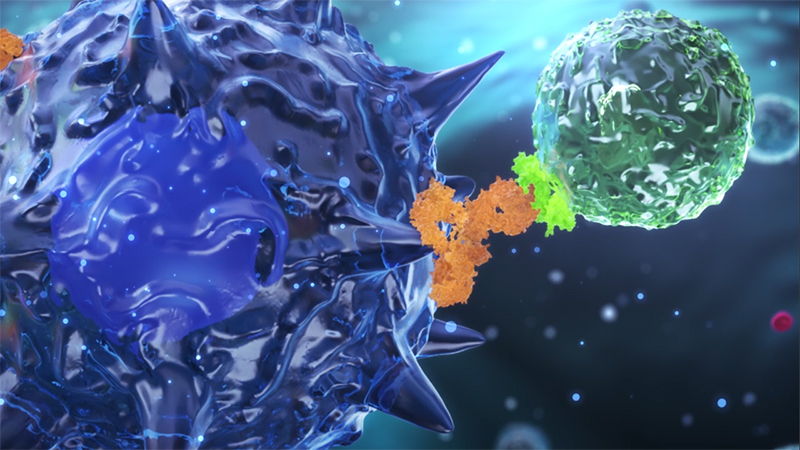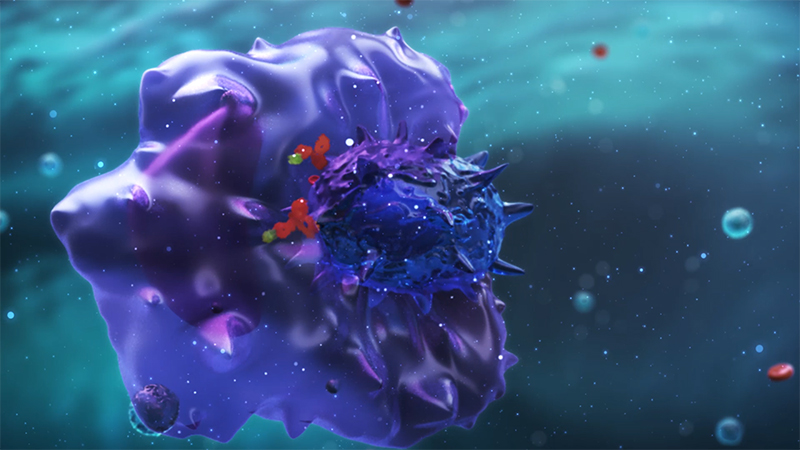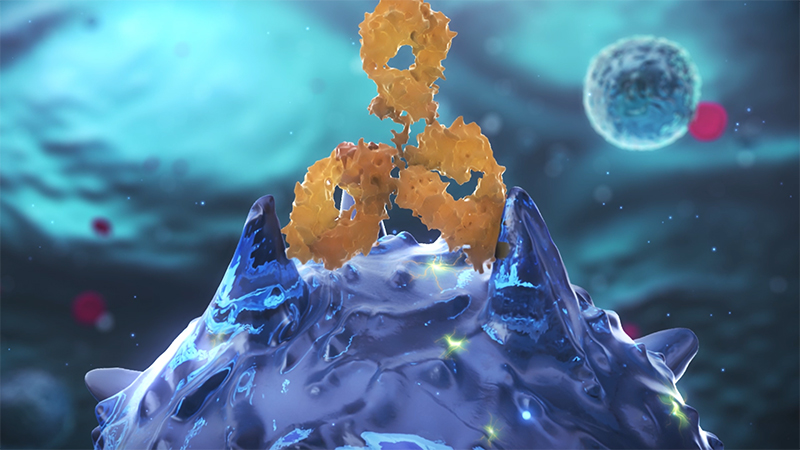Antibody activity
It’s known that antibodies that are inherent in our body can perform the 5 following actions.
Neutralizing activity
Antibodies bind to antigens such as pathogens and toxins which have invaded the body and inactivate the target's toxicity in order to neutralize it.
For example, growth factors stimulate the growth of some target cells such as cancer cells but when antibodies bind to receptors before they receive stimulation, the target cells starve to death.
CDC (Complement Dependent Cytotoxicity)
When an antibody binds to an antigen in a target cell (cancer cell, virus, etc.), multiple serum proteins (complement) react and activate one after another. Then, a series of reactions occur on the cell surface, lysing the target cell.
ADCC (Antibody Dependent Cellular Cytotoxicity)
When an antibody binds to an antigen on the surface of a target cell, such as a cancer cell, the antibody attracts immune cells such as macrophages and NK cells to kill or damage the target cell by releasing cytotoxic molecules.
ADCP (Antibody Dependent Cell mediated Phagocytosis)
When a foreign substance (pathogen) invades the body, the antibody paired to the antigen on the surface of the pathogen is produced, and macrophages that engulf and digest the foreign substance and neutrophils a type of white blood cells that engulf bacteria and protect the body are activated. They fight against bacteria, viruses, and cancer cells that cause various diseases.
Agonist activity
The function of antibodies is to bind to target molecules on the cell surface and activate the signaling mechanism. As a result, it causes changes in the state of the cells or cell death.

